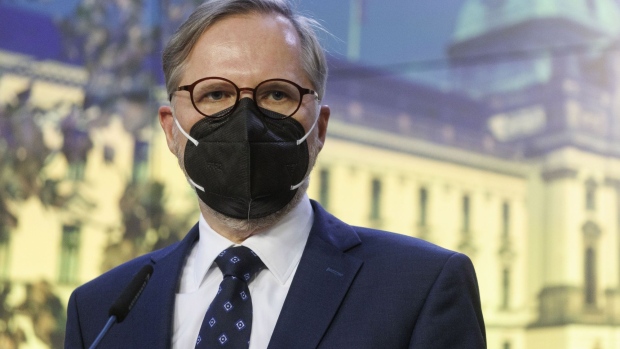Feb 9, 2022
Czech Government Approves Budget-Deficit Cut to Fight Inflation
, Bloomberg News

(Bloomberg) -- The new Czech government approved a revised budget for this year with the goal of weaning the central European country off its pandemic-era deficits and helping fight surging inflation.
After taking power two months ago, Prime Minister Petr Fiala’s cabinet voted on Wednesday for a 280 billion-koruna ($13.2 billion) shortfall. That represents a 26% reduction of the gap planned by the previous administration led by billionaire Andrej Babis, and a 33% drop from last year’s record deficit.
The bill must be approved by the lower house of parliament.
“This budget is truly anti-inflationary,” Fiala told reporters in Prague after the vote. “Unlike the previous government, we value tax payers’ money and want to manage it rationally and responsibly rather than just throwing it around.”
The five-party ruling coalition has pledged to return the country to its tradition of fiscal restraint after two years of fiscal stimulus protected jobs and wage growth during the pandemic, while also pushing consumer prices higher. The government-debt burden remains one of the lowest in the European Union.
Read More: Czechs Raise Rates to Highest in EU in One Last Big Hike
Compared with the previous administration’s plan for 2022, the new cabinet has cut spending on items such as wages and investments by about 77 billion koruna, and increased expected tax income by 62 billion koruna. With inflation projected to average 8.5% this year, labor unions have warned that employees’ real wages could drop for the first time since 2014.
©2022 Bloomberg L.P.







